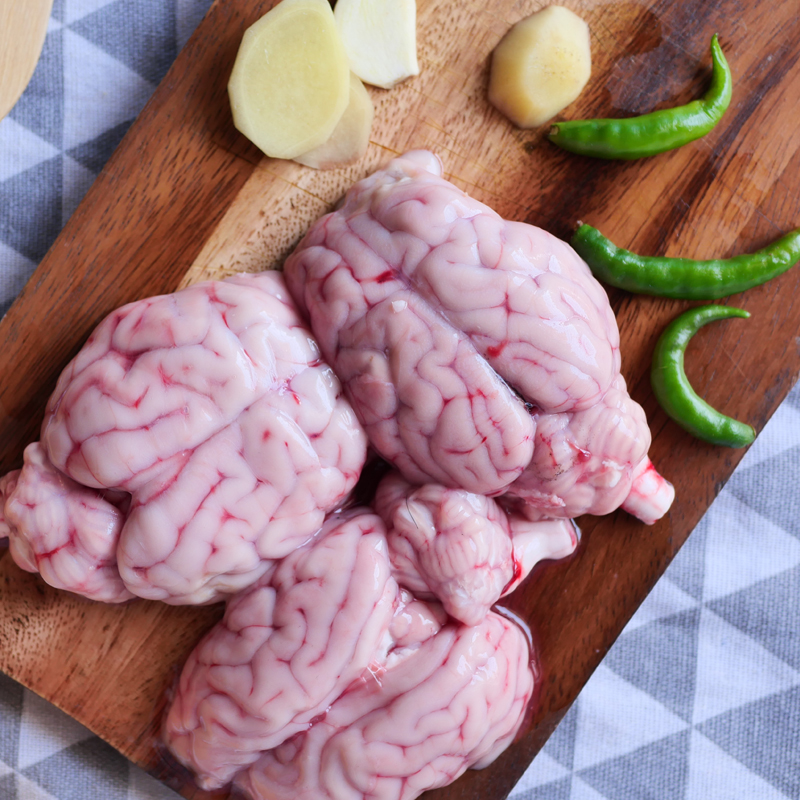
100 gr |
-- |
|
|---|---|---|
| Carbohydrate (gr) | 15.04 |
4928.47 |
| Protein (gr) | 3.59 |
1176.23 |
| Fat (gr) | 12.46 |
4083.43 |
| Fiber (gr) | 1.36 |
445.97 |
| Cholesterol (mg) | 14.64 |
4795.8 |
| Sodium (mg) | 325.27 |
106557.75 |
| Potassium (mg) | 392.16 |
128471.4 |
| Calcium (mg) | 78.15 |
25603.27 |
| Vitamin A (mg) | 46.04 |
15084.01 |
| Vitamin C (mg) | 6.16 |
2019.31 |
| Iron | 0.62 |
203.1 |
Veal brain, often regarded as a delicacy in many cuisines, is a nutrient-dense food. It provides significant amounts of essential nutrients such as folic acid, B vitamins (including B12), iron, zinc, potassium, and phosphorus. These nutrients play crucial roles in maintaining bodily functions, such as supporting the nervous system, promoting red blood cell production, and enhancing immune health.
Calories in veal brain are 127 calories per 100 grams.
Folic Acid
Folic acid is essential for DNA synthesis and cell division. It is particularly beneficial for pregnant women as it supports fetal development and reduces the risk of birth defects.
B Vitamins
B vitamins are involved in energy production, brain health, and the formation of neurotransmitters. Vitamin B12, found in high concentrations in veal brain, is vital for preventing anemia and maintaining nerve function.
Iron and Zinc
Iron is crucial for transporting oxygen in the blood, while zinc supports immune function and aids in wound healing. Together, they contribute to overall vitality and health.
Potassium and Phosphorus
Potassium regulates muscle contractions, nerve signals, and fluid balance in the body. Phosphorus supports strong bones and teeth while aiding energy production at the cellular level.
Despite its nutritional benefits, veal brain is high in cholesterol. Excessive consumption can lead to increased blood cholesterol levels, posing a risk for cardiovascular diseases. Individuals with heart conditions, high cholesterol, or a family history of heart disease should avoid consuming veal brain and similar organ meats such as head and trotters.
Veal brain is often used in traditional dishes and is appreciated for its soft texture and rich flavor. It is commonly boiled, fried, or incorporated into soups and stews. However, moderation is key to enjoying its flavor while avoiding potential health risks.